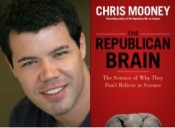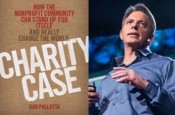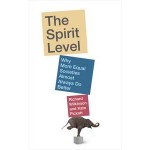Q&A: Chris Mooney – The Republican Brain
Written on October 22nd, 2014 |
Aired 05/16/12
Crazy though it may be, I assume many have accepted the fact that the Republican party has a problem with science and ultimately with evidence facts — reality. It is now a matter of politics for them to deny science. Among their presidential primary candidates, only Jon Huntsman and Mitt Romney accept that warming is happening and humans are a contributing factor.
CHRIS MOONEY has been on this trail for years. In 2005, he wrote the best-selling
THE REPUBLICAN WAR ON SCIENCE. By the time their anti-science, anti-reality bias was established, MOONEY was asking a deeper question. Did science have anything to teach us about why? And it turns out, recently, science does. That brings us to Chris’s new book, The Republican Brain: The Science of Why They Deny Science and Reality.
According to Mooney, from climate change to evolution, the rejection of mainstream science among Republicans is growing. Not only that, so is denial of expert consensus on the economy, American history, foreign policy, and much more. Why won’t Republicans accept things that most experts agree on? Why do they fight facts? He writes that the political parties reflect personality traits and psychological needs -Republicans wedded to certainty, Democrats to novelty – and this is the root of our divide over reality.
Hopefully, understanding how or why Republicans deny science and facts should suggest ways to interact and work with that “reality” differently in order to be more effective moving forward.
http://scienceprogressaction.org
Q&A: ROBERT JOHNSON, (INET)
Written on September 9th, 2014 |
Q&A: DAN PALLOTTA, CHARITY CASE: How the Non-Profit Community Can Stand Up for Itself and Really Change the World
Written on August 15th, 2014 |
Aired: 04/15/13
When someone approaches you to donate to a non-profit, how many of you want to know how much of of its money goes to salaries and fund-raising and how much goes to actual program services? If you’re like most people, that question probably figures into your decision.
I myself have factored that question of how much is spent on overhead into my charitable giving. But is it a valid or wise way to make such decisions? According to today’s guest, DAN PALLOTTA, while it may be helpful, much more important is how well they serve their mission, how good a job they’re doing solving the problems you care about.
In his earlier book, UNCHARITABLE, Pallotta, who has a record of helping to raise hundreds of millions of dollars for causes, made the case that the way we think about non-profits and the rules we set for them, makes it harder for them to succeed on a truly significant scale. Too many nonprofits, he says, are rewarded for how little they spend — not for what they get done. Instead of equating frugality with morality, he asks us to start rewarding charities for big goals and big accomplishments (even if that comes with big expenses). Where other folks suggest ways to optimize performance inside the existing paradigm, UNCHARITABLE suggests that the paradigm itself is the problem and calls into question our fundamental beliefs about charity.
With a new book, CHARITY CASE: How the Non-Profit community Can Stand Up for Itself and Really Change the World and in a recent very popular TED talk, he says “My goal … is to fundamentally transform the way the public thinks about charity within 10 years.”
www.danpallotta.com
www.advertisingforhumanity.com
Free Forum Q&A – TIM DECHRISTOPHER: Civil disobedience (bidding) at public lands auction landed him 21 months in prison
Written on May 25th, 2014 |
Aired: 6/30/13
On December 19, 2008 TIM DeCHRISTOPHER disrupted a highly disputed BLM auction, effectively safeguarding thousands of acres of land. Not content to merely protest outside, Tim entered the auction hall and registered as bidder #70. He outbid industry giants on land parcels (which, starting at $2 an acre, were adjacent to national treasures like Canyonlands National Park), winning 22,000 acres of land worth $1.7 million Two months later, incoming Interior Secretary Ken Salazar invalidated the auction. Yet DeChristopher was indicted and tried on two federal felonies and spent 21 months in prison.
Released in April 2013, DeChristopher is the subject of documentary film, Bidder 70, which opened this weekend at the Music Hall in Beverly Hills and other theaters around the country. He joins me this week to tell his story. What led him to that auction? What went through his mind as he began bidding and winning? Why didn’t he take a plea deal? What was his experience in prison? What message does he have for others?
We’ll also talk about the state of the movements to deal with energy, environment, and climate change, in light of Obama’s recent speech and the eventual decision whether or not to build the KeystoneXL pipeline.
“At this point of unimaginable threats on the horizon, this is what hope looks like. In these times of a morally bankrupt government that has sold out its principles, this is what patriotism looks like. With countless lives on the line, this is what love looks like, and it will only grow…
— From Tim DeChristopher’s statement to the court at his sentencing hearing
Q&A: RICHARD WILKINSON & KATE PICKETT, Authors – The Spirit Level: Why More Equal Societies Almost Always Do Better
Written on March 2nd, 2014 |
Originally Aired: 01/31/10
RICHARD WILKINSON & KATE PICKETT authors of an important new book: The Spirit Level: Why More Equal Societies Almost Always Do Better
In the UK, the Guardian says The Spirit Level “might be the most important book of the year, and The New Statesman named it one of the top ten books of the past decade.
Based on thirty years’ research, The Spirit Level shows that unequal societies are bad for the well-off as well as the poor, when it comes to health and social problems, child well being, life expectancy, infant mortality, obesity, educational scores, drop out rates, illegal drug use, mental illness, homicide, incarceration, CO2 emissions, recycling, social mobility, innovation, and levels of trust.
The good news: If all these ills are related to one measure – income inequality, then, decreasing inequality should be the central goal of our politics because we can be confident that it works.
RICHARD WILKINSON has played a leading role in international research on inequality. He studied economic history at the London School of Economics before training in epidemiology, and is Professor Emeritus at the University of Nottingham Medical School and Honorary Professor at University College London.
KATE PICKETT is a senior lecturer at the University of York and a National Institute for Health Research Career Scientist. She studied physical anthropology at Cambridge, nutritional sciences at Cornell and epidemiology at Berkeley before spending four years as an Assistant Professor at the University of Chicago.
